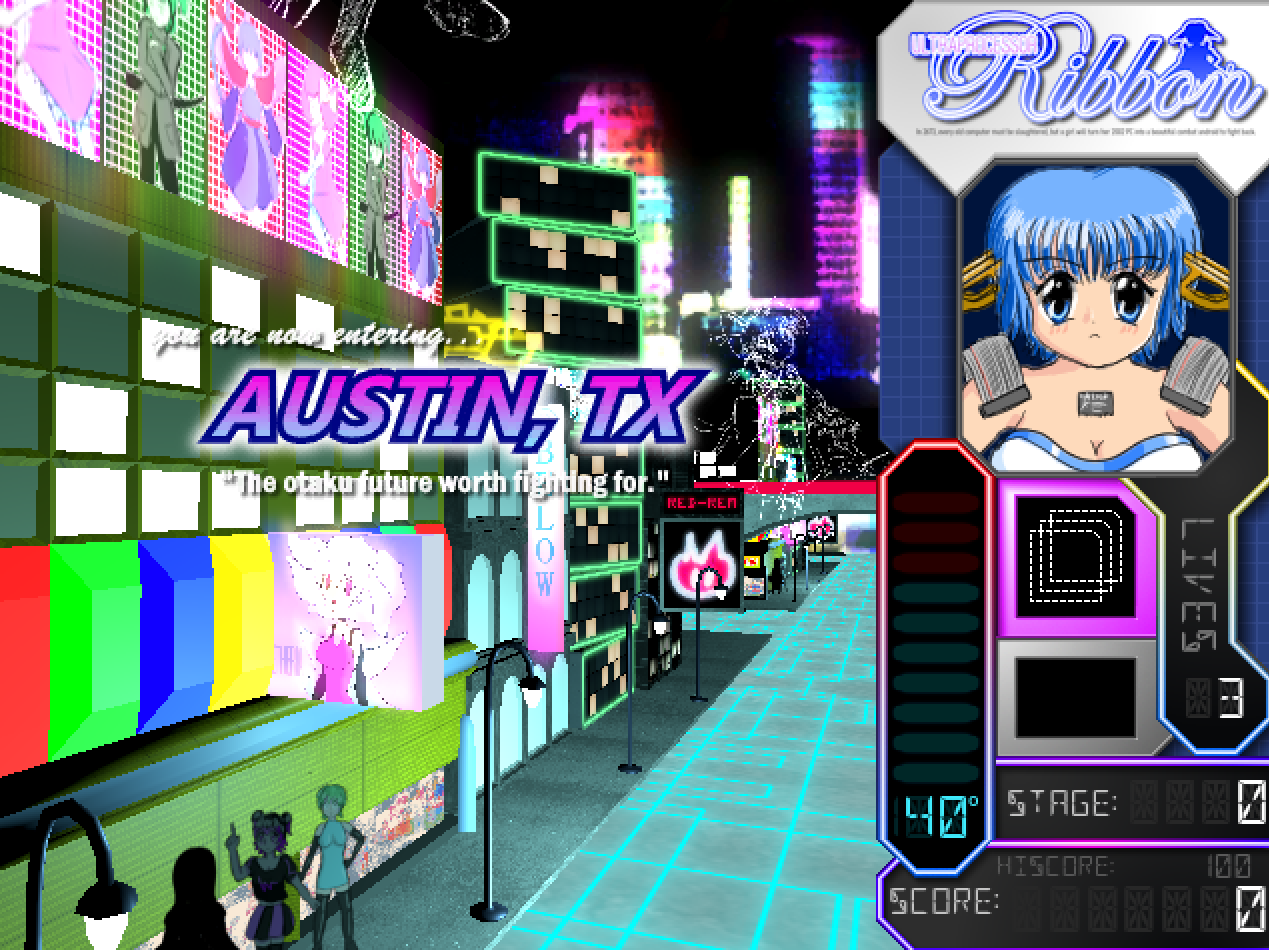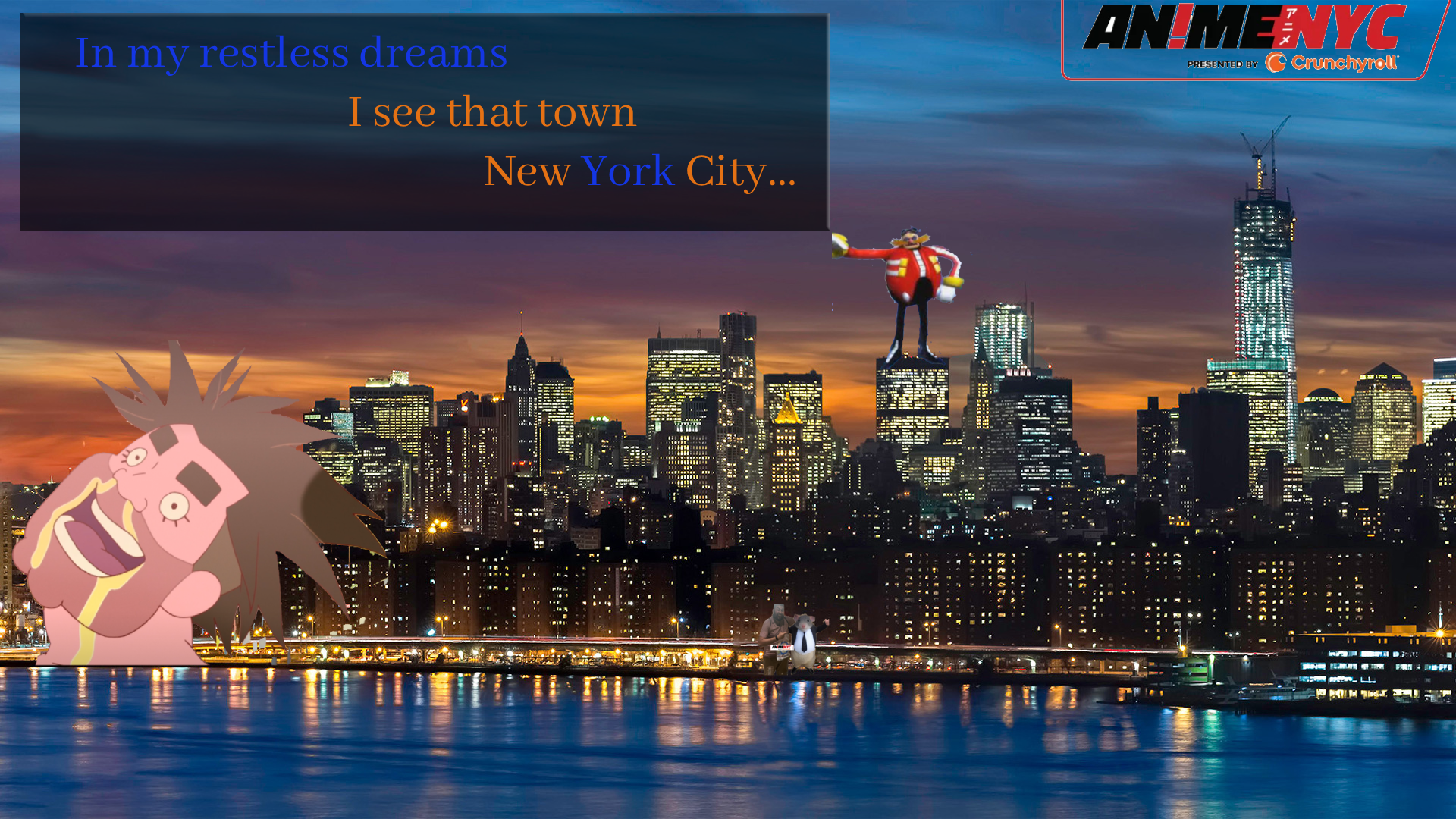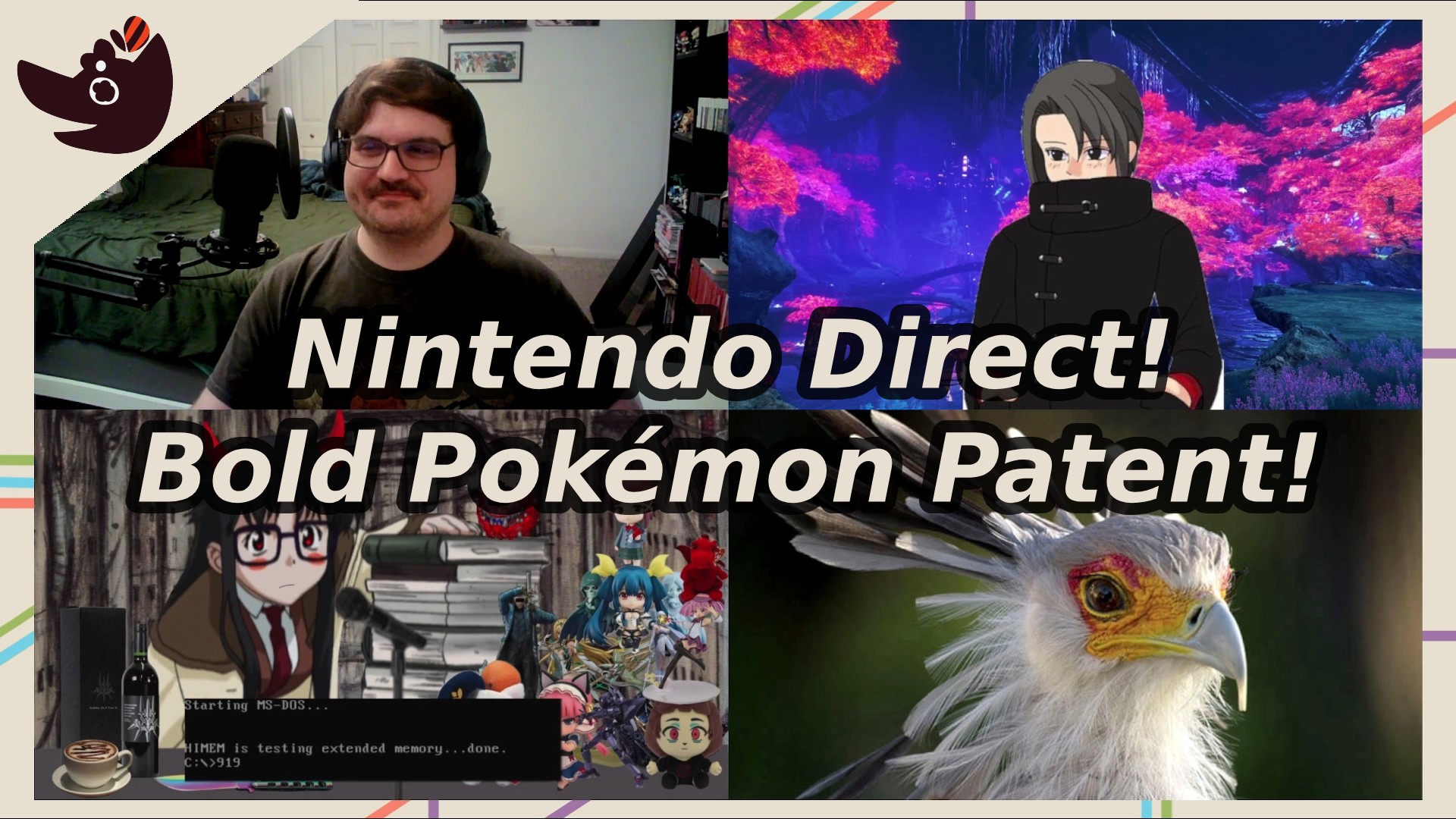Walking into Demuresoft’s workspace, you’re also entering someone’s home. There’s a television with a variety of game consoles hooked up on the side, and a couch across the way for gaming and napping. A fire alarm hangs on the wall next to the front door, and Ruby, the 3D modeler of the team and owner of the apartment, attempts to trick me into pulling it. She grins, pointing to it. “It just sets off a loud noise, but people like to pull one with no consequences!” Beyond that sits multiple desks, covered with computers of varying ages. None are directly modern, but all of them are in working order and are covered in stickers and anime figurines, particularly of Touhou characters.
Demuresoft is headquartered in Austin, Texas, where most of their staff lives. A few of the crew have moved, one to Japan and one to California, but a majority of the work is done in an apartment room, set up like an office in a Japanese doujin works studio. If you’ve seen something like the anime 16-Bit Sensation, you’ll be able to get a general picture of what this space looks like. A row of computers, some more modern than those in the living room, some just as old, all running a variety of programs dedicated to a single goal: making an eroge Breakout-like.
Jenn, the artist and overall head of Demuresoft, spoke with a sparkle in her eye the entire time I asked her anything about the game, Ultraprocessor Ribbon. “I make what I want to make. I thought about going into the mainstream game development space, but I knew I’d end up making things I didn’t care as much about. Here, I can be me, I can create characters I want to see, and I can show off my inspirations.”
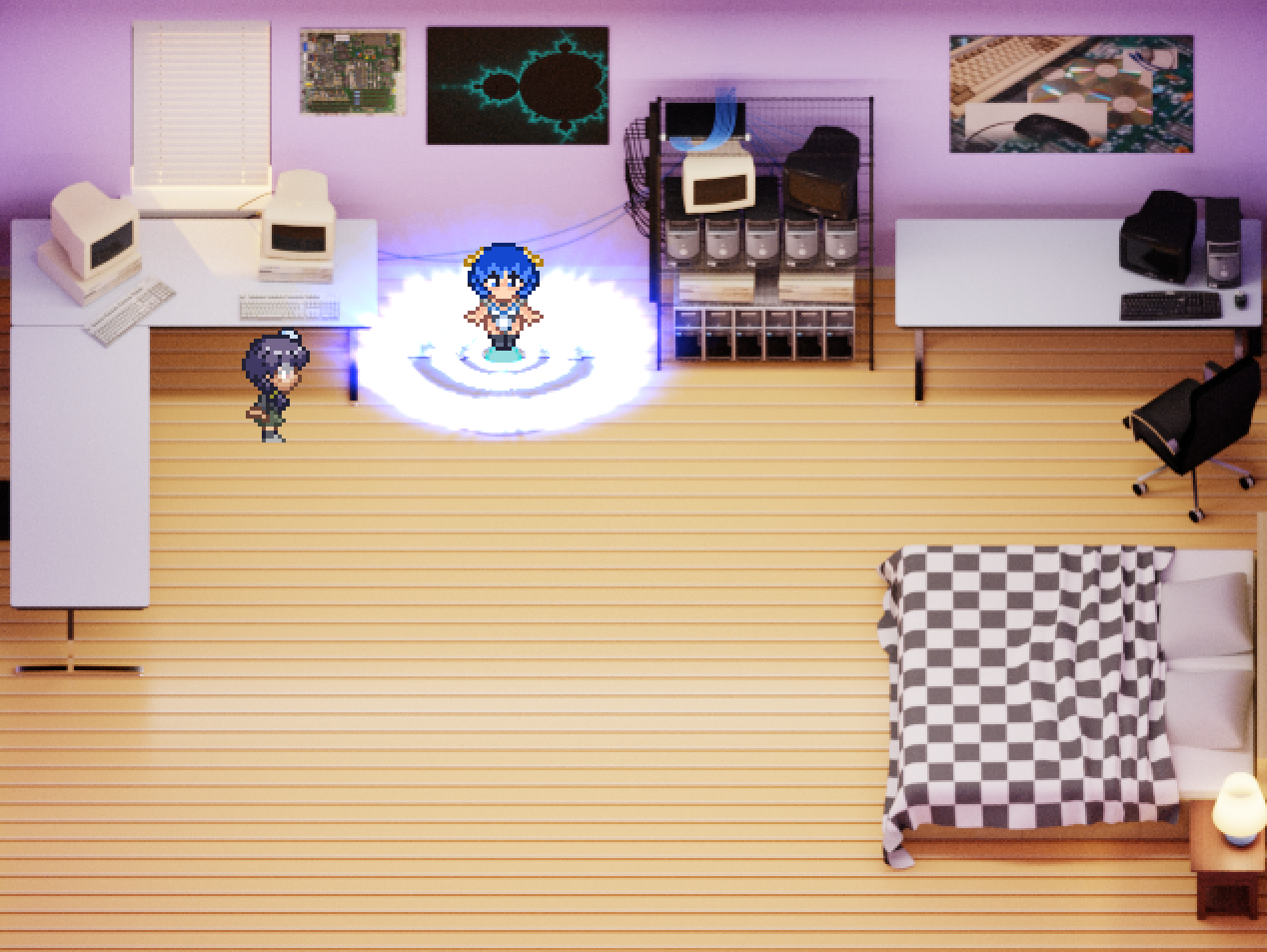
The biggest inspirations seen in Demuresoft’s art come from the catalogue of Leaf, such as Comic Party and To Heart, as well as Leaf’s contemporaries such as Clannad by Key and Tsukihime by Type-Moon. Jenn pulled out an artbook full of Mitsumi Misato’s illustrations from a nearby bag, gushing over the love and care she put into each artwork. From how Jenn spoke about her own work, I could tell she put that same level of love into her work.
Ultraprocessor Ribbon is a simple game, but its got a good gameplay loop. You play as Ribbon, an android created by her inventor, Stella, who crafted her out of a computer from 2002. Now in the year 2673, old tech is outlawed, and Ribbon fights for her right to exist against a world trying to stomp out the past. Ribbon does so by flying through Breakout-style arenas, smacking a floating CD around to bounce off the bricks and the occasional spawned enemy. After a few levels, you’ll run into a boss, who fires bullets at you while you attempt to take them out with your CD smack.
If you’re a Touhou fan, this will sound similar to the first game in the series, the PC-98 game Highly Responsive to Prayers. This was by design, as the entire dev team has knowledge of Touhou, with all but one of them declaring their fandom of the franchise proudly when asked. The only non-fan was, according to the rest of the group, going to play the series eventually, “whether she wants to or not”. Touhou’s aesthetics were a major inspiration, but so was its origins as a doujin project, with creator Zun originally releasing the games at Comiket and continuing to participate in the event many years later.
Ultraprocessor Ribbon includes sexual content, as Stella and Ribbon have an overtly dom/sub relationship, acted upon in unlockable h-scenes. Ribbon also loses her clothing after taking enough damage. While the h-scenes were added to showcase a normal aspect of a relationship evolving, the clothes being stripped was just because Jenn liked it. “I was inspired by a lot of eroge,” Jenn said. “I was able to take something meaningful from these titles, and I don’t think the sex is there for no reason. But I also wanted to make a game like this, and because I could, I did!” Jenn was also inspired by the current wave of robot girl appreciation, which she said lines up with today’s proliferation of AI. “Robots are on people’s minds, but I don’t want to talk about AI in this game. I want to celebrate tech’s ability to make people creative, not a lack of creativity.”
Demuresoft’s creativity is fostered by their work environment. The room they work in has anti-crunch mottos written on notes hung up on the wall next to a collection of fanart they’ve received. The crew co-works as much as possible, meeting up in the office to chip away at a variety of tasks. The team agreed that co-work makes the work less bleak, and gives a sense of tangibility to the creative energy. Jenn explicitly has the final say in any creative choices, but she still incorporates the entire group’s ideas into the game, saying that allowing for an open floor leads to better work. “A good leader incorporates everyone’s general feelings into the vibe of the game, but they also have to meld that vibe into something coherent,” Jenn said. “Give your team a sandbox to play in, so they can build in their own space but not overrun others.”
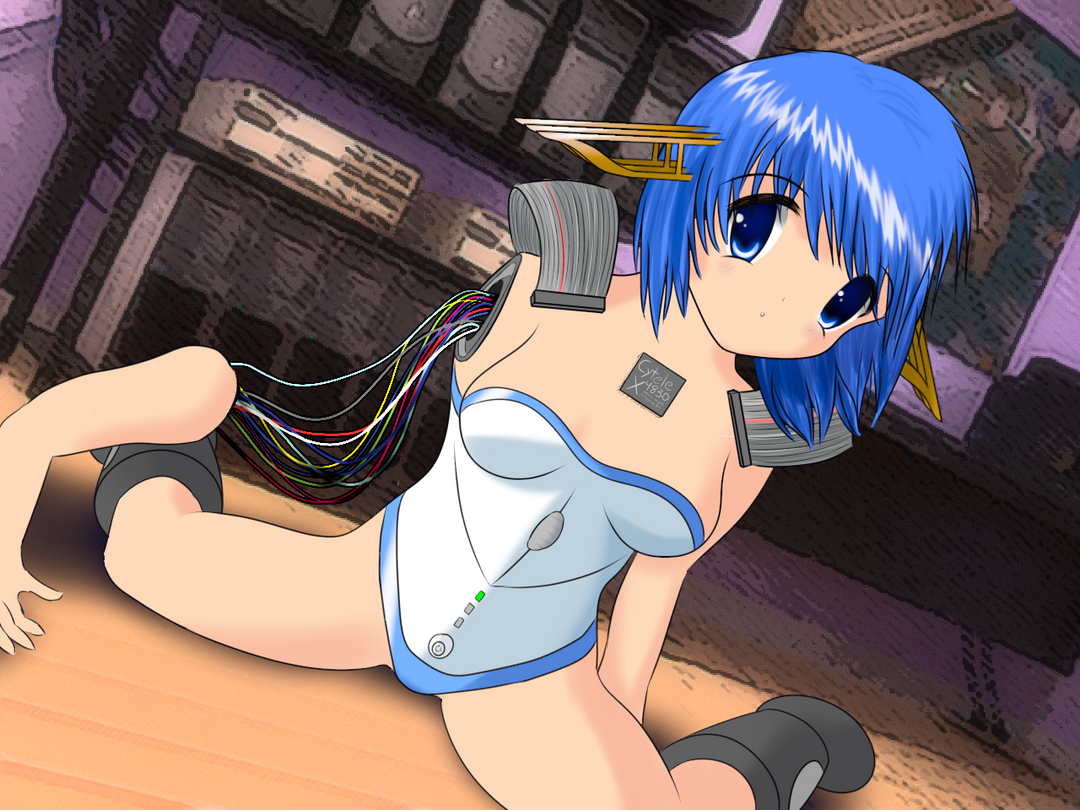
A cloud hangs over Demuresoft’s output, however. Payment processors are clamping down on adult media, with stores such as Steam and itch.io delisting, removing, or otherwise obscuring NSFW games to comply with their requests. There is a massive push-back campaign attempting to reverse these efforts, but large companies such as Visa and PayPal often target titles similar to Ultraprocessor Ribbon due to their anime art style. Demuresoft has been tangentially affected by these issues, as their publishing partner JAST was removed from San Japan 2025 in the middle of the convention. While this was apparently not a legal decision, Demuresoft was nervous about being kicked out during the entire convention, as they too were selling a physical demo of Ribbon on USB at the con. Thankfully, nothing happened to them, and they were able to break even on their booth’s fees and sold out of their USBs.
Demuresoft pushes back against the censorship by pressing on. “The things I can do are what I focus on,” Jenn said. “Being afraid is what they want, and I’m not letting them win.” Demuresoft creates not to be transgressive, but genuine. “Cultural norms and lines are shifting daily, and trying to define anything too much can be harmful. We try to be mindful of others’ feelings, but there’s a joy at poking limits, and having reading comprehension is key!” Jenn continued. “We want to create for us, and if that happens to resonate with others, that’s great! Our work finds people through surface level, aesthetic connections, then sinks in deeper with the writing and characters.” Jenn and friends are artists for art’s sake, and they’ll keep meeting up in that office, working on niche projects as long as they can.
